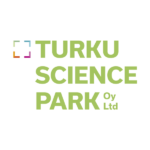Workshop „AI in European Hospitals: Paving the road to successful implementation“ | 14 November 10:00-17:00 CET | Medica, Düsseldorf, Germany
Event Date: 14 November 2023
The development of algorithms and tools supported by artificial intelligence (AI) in medicine has seen exponential growth in the past years. However, the integration into day-to-day clinical practice is still at an early stage. What are the main challenges? Are there any best practices yet? What can we learn from forerunners? These and other questions will be discussed in an international workshop organized by BioCon Valley® GmbH – Cluster Health Economy Mecklenburg-Vorpommern – in cooperation with ScanBalt, the Interreg Baltic Sea Region Project CAIDX, Dig-in-Health and the Network of German Health Regions (NDGR).
Participation is free of charge. A ticket for MEDICA is required.
Programm
| 10:00 | Welcome and registration |
| 10:30 | Introduction – Setting the scene (N. N., Dig-in-Health) Members of the association Dig-in-health, a German think tank for digital health, have developed a discussion paper which is intended to give stakeholders in the health care domain, experts as well as interested citizens, an overview of challenges, opportunities and pitfalls when applying AI in health care. The paper will be presented and discussed with invited experts. Finally, there will be an open discussion with the audience. |
| 11:30 | Coffee Break – to increase the natural intelligence |
| Panel: „Implementation & adoption of AI tools in European hospitals: how to attract clinicians?“ Moderation: Dr. med. Doreen Görß |
|
| 12:00 | Panel discussion 1: The moderator will provide a brief introduction to concerns of implementation and acceptance of novel technology in complicated hospital settings during this session. The first panel discussion, with professionals in AI development, business informatics, and UI/UX design, will cover themes such as technology enrolment, user assistance, usability, and interface design. |
| 12:45 | Lunch break – an empty stomach does not like to code |
| 13:30 | Panel discussion 2 The second Panel discussion will involve physicians, quality managers, or ethicists, regarding critical adoption aspects in clinical application environments. Topics such as user characteristics and trust in technology will be discussed. Both panel discussions will be presented in front of the workshop attendees and will provide opportunities for audience engagement. |
| 14:15 | Coffee break – recharge for every mind |
| 14:45 | CAIDX – out of the lab, off to the European Hospitals The project CAIDX establishes cooperation between artificial intelligence (AI) providers and healthcare institutions to help healthcare professionals integrate AI, and thus improve diagnostics and treatment. CAIDX aims to create the conditions to facilitate the adoption of AI and data-driven diagnostic tools in healthcare (and hospitals in particular) by focusing on collaborative development, contracting, procurement and capacity building. By developing standard practices for the development, testing and implementation of such AI applications, our solutions are aimed to enhance and accompany the cultural change needed to unleash the potential of AI in healthcare. After a general introduction to the project, the audience will be split up into four groups. The workshop participants will be touring four different segments of the project and are invited to provide feedback. The goal is to encourage the best possible outcome, to prevent the known challenges of implementation. |
| 15:45 | Coffee Break – extra energy for the extra mile to AI in European Hospitals |
| 16:00 | Summary – next Steps – networking What are the next steps? The CAIDX project aims to develop guidelines and tools to support the implementation of AI in the clinical diagnostic workflow. Participants are invited to actively engage with the project partners. Further opportunities for collaboration will be discussed on site with the project partners. |












